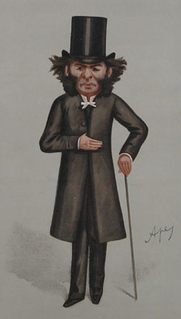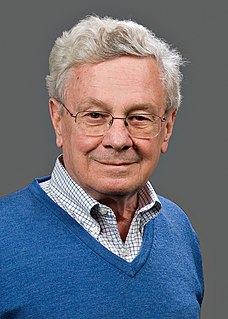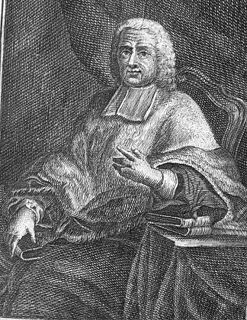A Quote by William James
The man who knows governments most completely is he who troubles himself least about a definition which shall give their essence. Enjoying an intimate acquaintance with all their particularities in turn, he would naturally regard an abstract conception in which these were unified as a thing more misleading than enlightening.
Related Quotes
My conception of the audience is of a public each member of which is carrying about with him what he thinks is an anxiety, or a hope, or a preoccupation which is his alone and isolates him from mankind and in this respect at least the function of a play is to reveal him to himself so that he may touch others by virtue of the revelation of his mutuality with them. If only for this reason I regard the theater as a serious business, one that makes or should make man more human, which is to say, less alone.
My aim is to give you only the things with which I am completely satisfied, even if it means asking you a little more [time] for them... for if I were to do otherwise I'd turn into a mere painting machine and you would be landed with a pile of incomplete work which would put off the most enthusiastic of art collectors.
The sense that a man is serving a Higher than himself, with a service which will become ever more and more perfect freedom, evokes more profound, more humbling, more exalted emotions than any thing else in the world can do. The spirit of man is an instrument which cannot give out its deepest, finest tones, except under the immediate hand of the Divine Harmonist.
Take the happiest man, the one most envied by the world, and in nine cases out of ten his inmost consciousness is one of failure. Either his ideals in the line of his achievements are pitched far higher than the achievements themselves, or else he has secret ideals of which the world knows nothing, and in regard to which he inwardly knows himself to be found wanting.
Men are apt to mistake, or at least to seem to mistake, their own talents, in hopes, perhaps, of misleading others to allow them that which they are conscious they do not possess. Thus lord Hardwicke valued himself more upon being a great minister of state, which he certainly was not, than upon being a great magistrate, which he certainly was.
Personality is that which is most intimate to me—that by which I must act out my life. It is that by which I belong to man, that by which I amable to reach after God; and He has given to me this pearl of great price. It is an immortal treasure; it is mine, it is His, and no man shall pluck it out of His hand.
love is thicker than forget more thinner than recall more seldom than a wave is wet more frequent than to fail it is most mad and moonly and less it shall unbe than all the sea which only is deeper than the sea love is less always than to win less never than alive less bigger than the least begin less littler than forgive it is most sane and sunly and more it cannot die than all the sky which only is higher than the sky
A man's knowledge may be said to be mature, in other words, when it has reached the most complete state of perfection to which he, as an individual, is capable of bringing it, when an exact correspondence is established between the whole of his abstract ideas and the things he has actually perceived for himself. His will mean that each of his abstract ideas rests, directly or indirectly, upon a basis of observation, which alone endows it with any real value; and also that he is able to place every observation he makes under the right abstract idea which belongs to it.
He could remember all about it now; the pitiful figure he must have cut; the absurd way in which he had gone and done the very thing he had so often agreed with himself in thinking would be the most foolish thing in the world; and had met with exactly the consequences which, in these wise moods, he had always foretold were certain to follow, if he ever did make such a fool of himself.
We have to do away with a false and misleading dualism, one which abstracts man on the one hand and technology on the other, as if the two were quite separate kinds of realities.... Man is by nature a technological animal; to be human is to be technological.... When we speak of technology, this is another way of speaking about man himself in one of his manifestations.
I heartily accept the motto, "That government is best which governs least"; and I should like to see it acted up to more rapidly and systematically. Carried out, it finally amounts to this, which also I believe — "That government is best which governs not at all"; and when men are prepared for it, that will be the kind of government which they will have. Government is at best but an expedient; but most governments are usually, and all governments are sometimes, inexpedient.








































